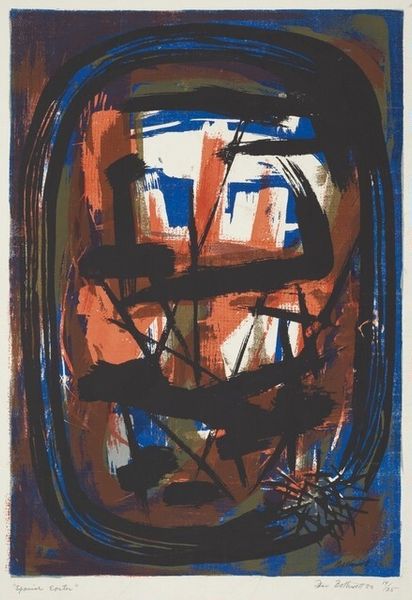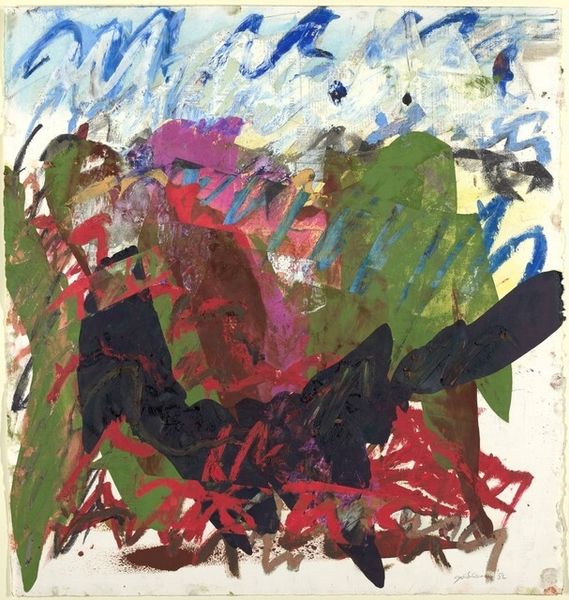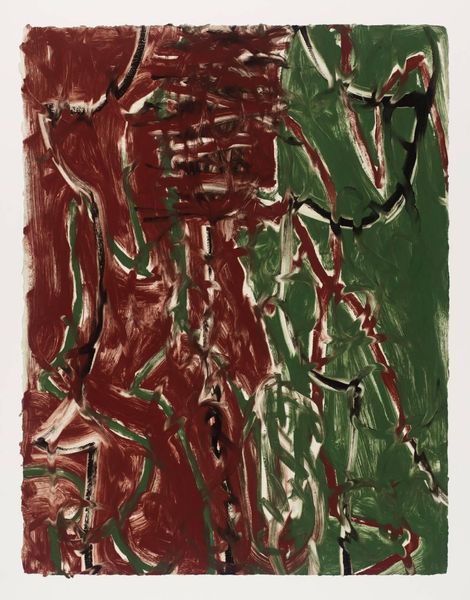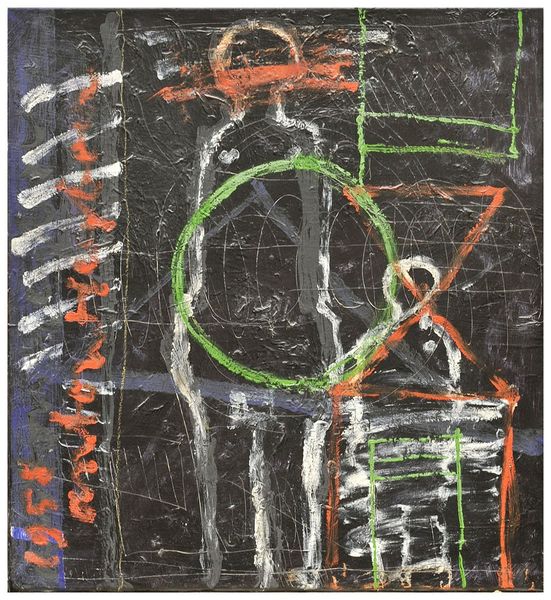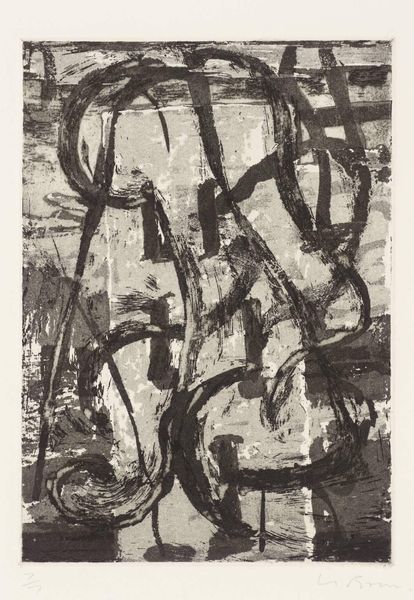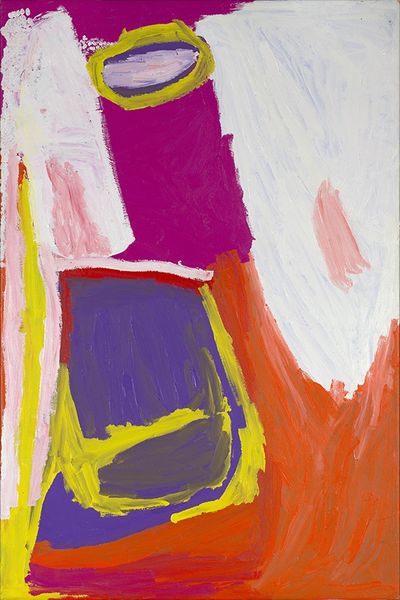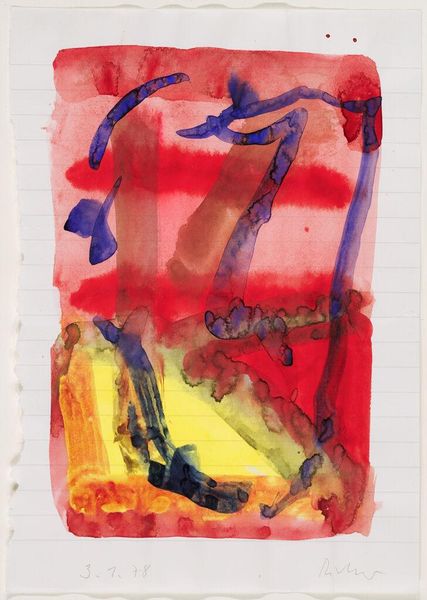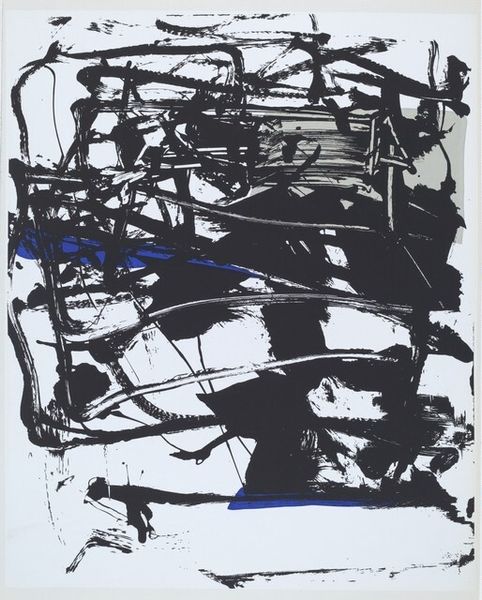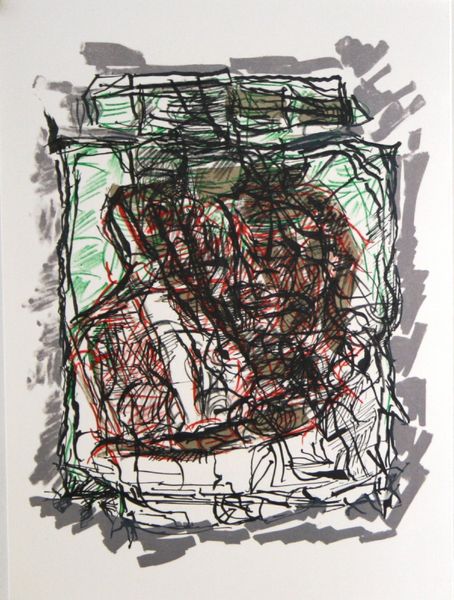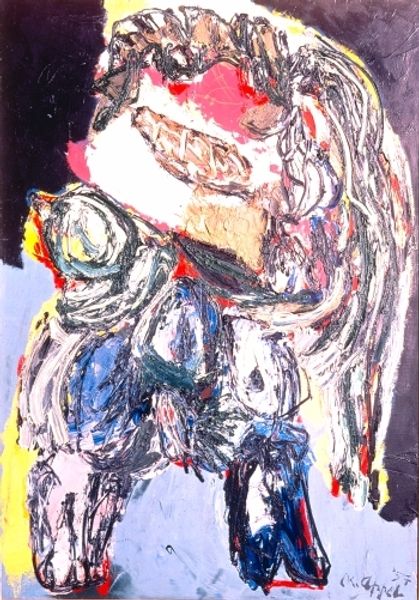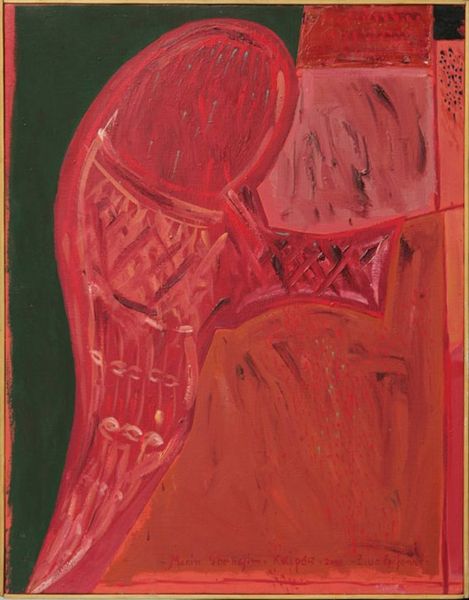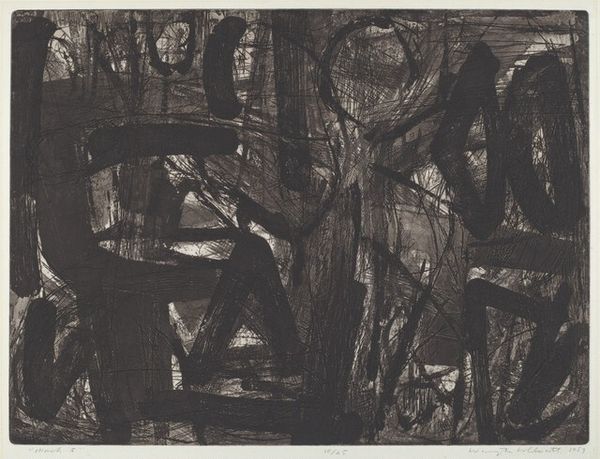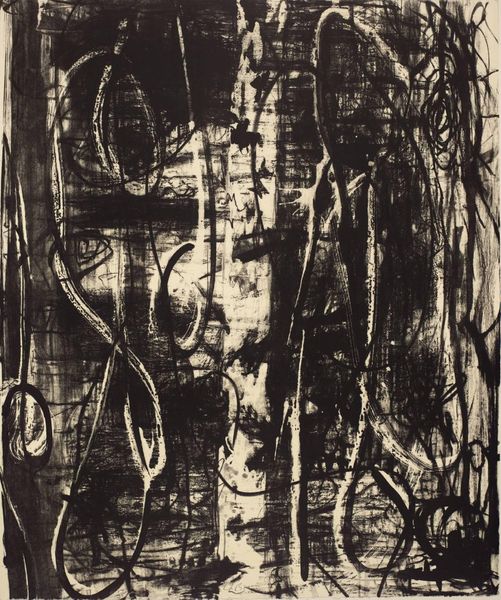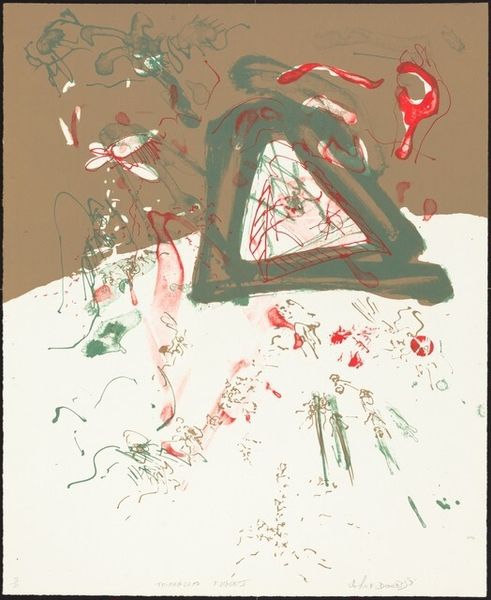
print, etching
#
abstract-expressionism
#
abstract expressionism
# print
#
etching
#
form
#
abstraction
#
line
#
monochrome
Dimensions: image: 604 x 448 mm sheet: 662 x 504 mm
Copyright: National Gallery of Art: CC0 1.0
Curator: Looking at "Garden of Evil," a 1958 print by Dennis Beall, done in etching, its intense use of form and monochrome makes it very striking. Editor: Monochrome? Maybe predominantly, but those pools of deep, shadowed blue in the bloody red, make it almost a bruised composition, chaotic and trapped, don't you think? I see turmoil in those furious lines. Curator: I see your point, there's more than monochrome going on, but you cannot deny the line is very important here, and it speaks volumes about Beall's embrace of abstract expressionism. Think of it in the broader context of Cold War anxieties. The 'garden' becomes a site of psychological unease, almost an interior landscape rather than an actual, physical place. Editor: An interior landscape overrun with brambles and lurking shadows! It's the kind of garden where you might find yourself face-to-face with your deepest fears, projected outward. Do you think the rawness of the etching, that feeling of immediacy, adds to that sense of internal struggle? Curator: Absolutely. Etching lends itself to a kind of expressive freedom that was prized by abstract expressionists. Consider the socio-political dynamics, these artists were celebrated—and used—to highlight America’s dedication to freedom of expression during a time of intense ideological conflict with the Soviet Union. The CIA quietly funded some abstract expressionists during the Cold War to undermine soviet influence! Editor: I get it. Subversive gardens as soft power, alright. Yet, even with this political undercurrent, I still find this piece personally evocative. It reminds me, honestly, of struggling with my own creativity, like wrestling dark forces on a small page. That vortex, where the blue bleeds, seems to have been created out of raw emotional honesty. Curator: That's the power of abstract expressionism. Even knowing the historical context, the political landscape and artistic intentions doesn’t fully prepare you for an experience with the artwork; you will never stop finding that element of direct human connection, right there, etched in time. Editor: Exactly! Even knowing the "facts" don’t kill it. "Garden of Evil" is a potent image, like an intense and silent cry for catharsis through chaos, however staged that chaos could be for public consumption.
Comments
No comments
Be the first to comment and join the conversation on the ultimate creative platform.
